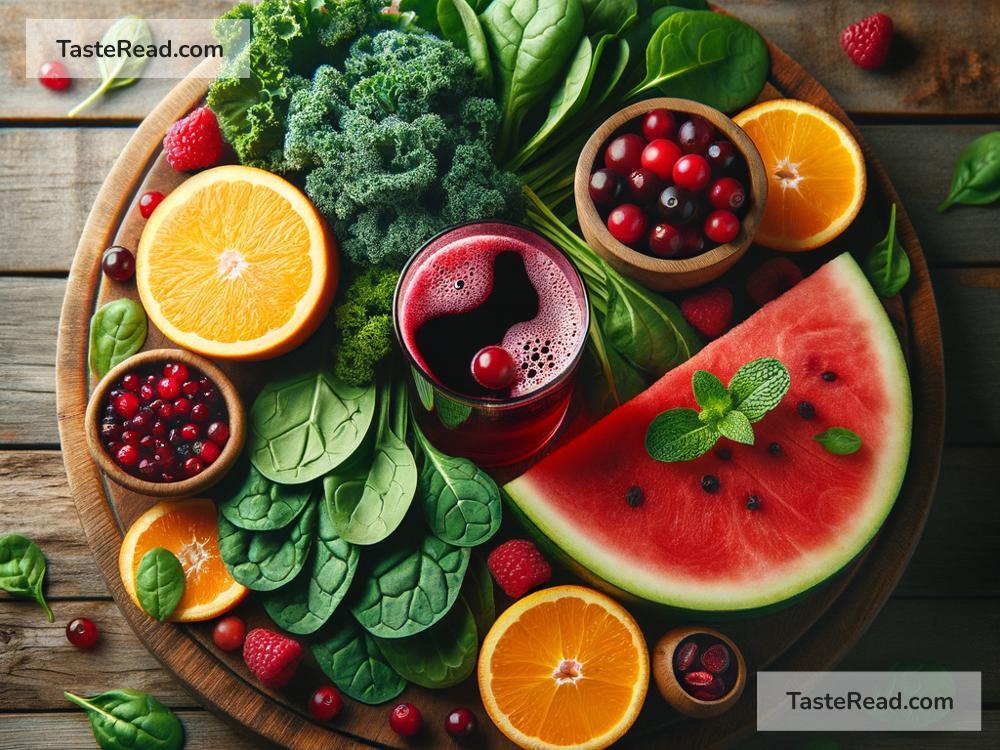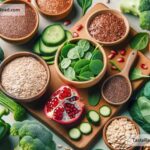Foods That Promote Bladder Elasticity: A Path to Better Urinary Health
Your bladder plays a fundamental role in your daily life, helping store and release urine. Like many other organs in the body, the bladder can benefit from the right nutrients to stay healthy and function properly. Bladder elasticity — the ability of the bladder to stretch and contract as needed — is an important aspect of its health. A bladder with good elasticity can store urine without causing discomfort and empty itself efficiently when you go to the restroom.
So, how can you support your bladder’s elasticity? While lifestyle changes such as hydration, exercise, and avoiding bladder irritants are essential, certain foods provide nutrients that directly or indirectly promote bladder elasticity and health. Let’s take a closer look at these amazing bladder-friendly foods.
1. Water-Rich Foods
Water-rich foods like cucumbers, watermelon, celery, oranges, and strawberries are natural hydrators. Proper hydration is crucial for bladder elasticity because a well-hydrated bladder is less likely to become irritated or overworked. These foods boost fluid intake while providing essential vitamins and minerals to keep bladder tissues supple.
Why is this important? If your bladder gets dehydrated, it can become less flexible and more prone to irritation. A hydrated bladder is a happy bladder, so integrating these refreshing fruits and vegetables into your diet is a win-win for overall health.
2. Foods High in Vitamin C
Vitamin C is not only great for your immune system, but also for your bladder. Foods like citrus fruits (oranges, grapefruits, lemons), bell peppers, strawberries, pineapple, and broccoli are packed with this essential nutrient. Vitamin C supports collagen production, which plays a key role in maintaining the elasticity of tissues — including the bladder.
By promoting collagen health, these foods help your bladder maintain its ability to stretch and contract effectively. Additionally, Vitamin C is known for fighting urinary tract infections (UTIs), which can negatively impact bladder health if left untreated.
3. Omega-3 Fatty Acids
Omega-3 fatty acids, found in foods like salmon, walnuts, flaxseeds, and chia seeds, are known for their anti-inflammatory properties. Chronic inflammation can weaken your bladder walls and diminish their elasticity over time. By regularly consuming Omega-3-rich foods, you can help reduce bladder inflammation and promote tissue resilience.
Omega-3s also encourage healthy blood flow, which helps keep the bladder tissues nourished and strong. If you’re not a fan of fish, plant-based sources like walnuts and seeds are excellent alternatives.
4. Antioxidant-Rich Foods
Antioxidants fight off free radicals, which are harmful molecules that can damage your body’s cells — including those in your bladder. Foods such as berries (blueberries, cranberries, raspberries), carrots, spinach, and kale are rich in antioxidants that protect bladder tissues and contribute to their overall elasticity.
Cranberries, in particular, have been extensively studied for their ability to promote urinary health. They contain compounds that prevent bacteria from sticking to the bladder walls, reducing the risk of infections that could lead to stiffness or damage.
5. Whole Grains
Whole grains like oats, quinoa, brown rice, and whole wheat bread are excellent sources of magnesium — a mineral that contributes to healthy muscle function. A bladder that can smoothly contract and relax is one with good elasticity, and magnesium supports these movements.
Additionally, whole grains contain fiber, which prevents constipation — a condition that can put extra pressure on the bladder and weaken its elasticity over time. Incorporating whole grains into your diet is not only good for your bladder but also promotes overall digestive health.
6. Probiotic Foods
Probiotic foods such as yogurt, kefir, sauerkraut, kimchi, and miso can support bladder health indirectly by maintaining a balanced gut microbiome. A healthy gut microbiome reduces inflammation and improves immune function, both of which contribute to bladder health.
Probiotics can also help prevent and manage UTIs, which often interfere with bladder elasticity. Regular consumption of probiotics can ensure your bladder stays strong and healthy over the long term.
7. Nuts and Seeds
Nuts and seeds like almonds, pumpkin seeds, flaxseeds, and sunflower seeds are rich in Vitamin E, zinc, and healthy fats, all of which are vital for tissue repair and elasticity. These nutrients keep your bladder walls resilient and capable of stretching as needed.
Pumpkin seeds, specifically, have been shown to improve bladder health and reduce symptoms of overactive bladder, making them a great snack option for urinary wellness.
Foods to Minimize
While the foods mentioned above promote bladder elasticity, some foods and beverages can have the opposite effect. Limiting your intake of caffeine, alcohol, spicy foods, and artificial sweeteners can reduce bladder irritation, helping maintain its elasticity and comfort.
The Bottom Line
Your bladder works hard every day, and supporting its elasticity is central to keeping it healthy. Incorporating water-rich fruits, vegetables, antioxidant-packed berries, whole grains, nuts, seeds, Omega-3s, and probiotics into your diet can help promote bladder elasticity and function. At the same time, staying hydrated, managing stress, and avoiding irritants will further enhance your bladder health.
Remember, your dietary choices can make a significant difference in how well your bladder operates, ensuring it serves you efficiently for years to come. By nourishing your body with the right foods, you’re taking a proactive step toward better urinary health. Healthy bladder, happy life!


